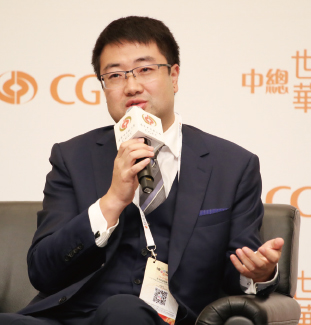Shang Hailong: Creating scenarios to help implement AI technology

Artificial intelligence (AI) is the cornerstone of the smart cities of the future. As Shang Hailong, Executive Director of HKAI LAB, pointed out, AI brings about huge changes for the world, one of which is the use of facial recognition. Today’s technologies use facial recognition as a means of logging into systems. For example, some ATMs use facial recognition technology to allow users to log in to their accounts and withdraw cash. Facial recognition login technology is being used in many different industries not only to reduce costs, but also to increase efficiency. For example, the unmanned supermarket opened by Suning in Nanjing last year was operated entirely using AI and facial recognition, so that customers can shop with ease using nothing more than an app and electronic payment.
Shang believes that businesses need expanded AI scenarios that will enable their technologies and products to be deployed within the construction of smart cities. Governments could provide guidance to traditional enterprises in a variety of industries to enable them to better understand how to transform AI into products, features and functions. At the same time, governments could also provide financial assistance. An example is the Technology Voucher Programme (TVP) introduced by the Mainland government. This would involve the government providing a subsidy of half or more of the cost for businesses to upgrade their procedures, production processes and product scenarios using these advanced technologies, as a means of encouraging businesses to engage with new technologies and boost service efficiency at lower cost.
While some voices in society remain concerned that AI could replace humans, Shang believes that as things stand AI is no substitute for human beings, as its applications are limited to individual functions where its abilities exceed those of humans. In other words, the current technologies can perform part of the work in terms of certain functions, but should still not be regarded as possessing true intelligence.
